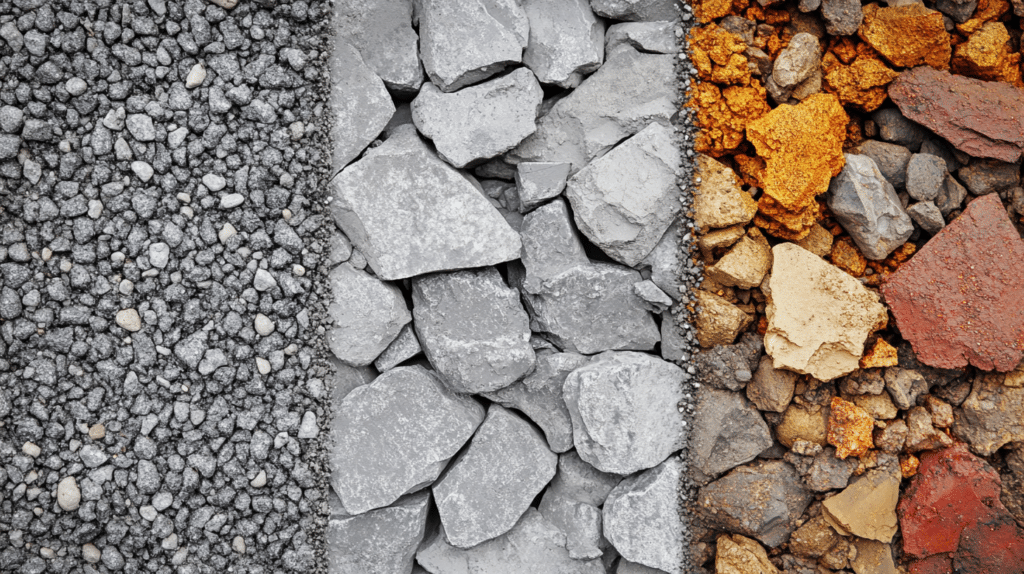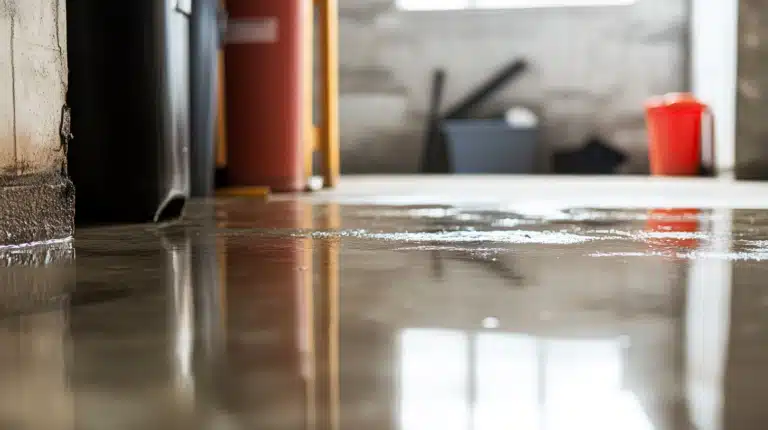When planning a new driveway, walkway, or patio, the material you choose can make all the difference in your project’s success. Concrete and asphalt are two of the most popular choices, each offering unique advantages and challenges. Whether you prioritize durability, cost, or design flexibility, this guide will help you decide which material suits your needs. Along the way, we’ll explore how dumpster rentals simplify construction site cleanup and why hiring an experienced Austin concrete contractor ensures high-quality results that stand the test of time.
Concrete vs. Asphalt: A Detailed Comparison
Choosing between concrete and asphalt requires a careful look at durability, cost, aesthetics, and environmental impact. Here’s a closer look at how these materials compare.
Durability and Longevity
Concrete outlasts asphalt in most cases, with a lifespan of 30 to 50 years or more when maintained properly. In comparison, asphalt driveways typically last 15 to 20 years. Concrete’s rigid structure makes it more resistant to weather-related damage, while asphalt’s flexibility can lead to quicker wear and tear, especially in extreme temperatures.
“Concrete is an excellent long-term choice,” says Dr. Sarah Cohen, a civil engineer specializing in paving solutions. “It requires minimal upkeep and maintains its strength over decades, unlike asphalt, which needs frequent maintenance.”
Cost Considerations
Cost is a primary concern for many homeowners. Asphalt is more affordable initially, costing $3 to $7 per square foot, while concrete ranges from $6 to $15 per square foot. However, asphalt’s ongoing maintenance costs—such as sealcoating every 2 to 5 years—can add up. Concrete, on the other hand, requires less frequent care, such as occasional resealing or pressure washing.
In the long term, concrete’s durability often makes it the more economical choice.
Aesthetic Options
When it comes to design flexibility, concrete has the edge. It can be stamped, stained, or textured to resemble natural stone, brick, or tile, making it ideal for homeowners who want a custom look. Asphalt, while less versatile, offers a sleek black surface that complements a wide range of home styles.
“The customization options with concrete allow homeowners to add real character to their outdoor spaces,” explains Robert Sanchez, an Austin contractor known for his innovative designs.
Environmental Impact
Both materials have environmental considerations. Concrete’s production process generates significant carbon emissions, while asphalt is made from petroleum, a nonrenewable resource. However, both are recyclable. Recycled asphalt is often used in road construction, while crushed concrete serves as a sustainable base material for new paving projects.
Managing Construction Waste with Dumpster Rentals

Construction projects, whether big or small, generate waste. Using a dumpster rental ensures your site remains organized and debris is disposed of responsibly.
The Role of Dumpster Rentals in Site Preparation
Clearing out old pavement and preparing the ground for a new surface creates significant waste, including chunks of concrete, asphalt, and soil. According to the EPA, construction and demolition debris accounts for nearly 600 million tons of waste annually. Dumpster rentals provide a practical solution by offering a centralized location for debris, streamlining cleanup.
“Using a dumpster for my driveway replacement saved me so much time and hassle,” says Kelly Nguyen, a homeowner in Austin. “It kept the site clean and the project on track.”
Choosing the Right Dumpster Rental Service
Selecting the right dumpster rental is crucial for efficiency. A 10-yard dumpster is perfect for smaller projects, while a 20-yard dumpster works well for larger undertakings. Local companies like Rubbish Inc. provide flexible scheduling and fast pickups, making the process smooth and stress-free.
Why an Austin Concrete Contractor is Key to High-Quality Results
Working with a professional Austin concrete contractor ensures your project is handled with expertise and precision, from preparation to finishing touches.
Expertise and Local Knowledge
Austin’s climate presents unique challenges, such as intense heat and occasional heavy rain. Local contractors are well-versed in how these factors affect paving materials and can recommend solutions that optimize durability. Proper grading, drainage, and curing techniques are essential to prevent common issues like cracking or pooling water.
“A good contractor understands how to adapt techniques to Austin’s climate,” explains Mark Alvarez, a seasoned contractor in the region.
Tailored Solutions for Your Needs
Professional contractors offer personalized services, helping you choose materials and finishes that align with your goals. Whether you’re creating a decorative stamped patio or a functional driveway, their expertise ensures your vision comes to life.
Reliable Project Management
From obtaining permits to adhering to safety regulations, experienced contractors handle the details, ensuring your project stays on schedule and within budget. Their project management skills minimize delays and deliver reliable results.
Final Thoughts….
Both concrete and asphalt offer unique advantages, but the right choice depends on your priorities. Concrete excels in durability and customization, while asphalt provides affordability and a classic look. Regardless of your decision, managing construction waste with dumpster rentals and hiring a skilled Austin concrete contractor will ensure your project is seamless and successful. Take the time to plan, and you’ll enjoy a durable, attractive surface for years to come.















